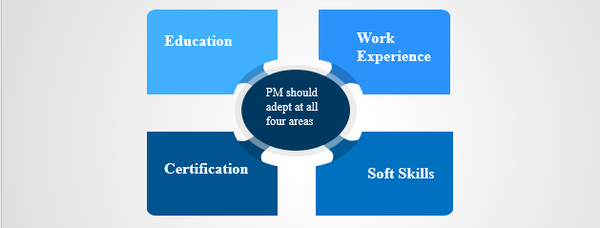Assistant Project Manager: Why They're Important, How They Help And What They Do?
Assistant project managers might not get the same limelight as project managers, but they are equally important to an organization. By definition, an assistant project manager works directly under the project manager and reports to him regarding the project progress. They make sure that all the departments and team members have what is needed for achieving the milestones and deadlines set by the project manager. For doing so, the assistant project managers must be familiar with different aspects of the project like the long-term and short-term goals, budgeting details, and the project calendar.

What Is The Role Of An Assistant Project Manager?
There are no set of defined roles for an assistant project manager. They are required to work on a variety of tasks that the project demands. The job of assistant project managers includes a wide range of management and administrative work for assisting the project director or project manager of an organization. They offer clerical support to the project managers for the smooth operations of the project.
The primary role is to assist the project manager in the project's research, development, and management. Some of their most common roles include:
- Assisting in project planning and management of the project.
- Following up on the progress of the project at hand and reporting to the project manager.
- Managing and tracking all project reports and statements.
- Collecting, developing, and analyzing the data useful for setting team targets.
- Collaborate with the project managers for developing and implementing the action plans required for proper money, time, and process management.
- Maintaining a good business relationship with the company’s clients.
- Schedule and confirm the project deliverables.
- Creating and maintaining a timeline and project calendar.
- Monitor the project budget and reporting it to the project manager.
- Organizing and tracking the project documents.
- Coordinate with all the involved parties, both in-house and contracted.
- Evaluating and identifying potential bottlenecks and preparing proposals to solve them.
- Coordinate with team members and plan for upcoming projects.
- Figure out if the team requires new team members and communicate the same with HR managers.
- Receive feedback from the upper management and help implement them in the ongoing project.
- Ensure regulatory compliance wherever necessary.
Since it's going to be a managerial role, except a dynamic working environment. Your job roles will change, and you'll find yourself working on something else entirely that you may not have thought of doing. But at the end of the day, you'll be assisting the project manager to complete and deliver the project.
How Do You Become An Assistant Project Manager?
An assistant project manager is a highly specialized job role that requires a mix of education, training, work experience, and soft skills. Therefore, you need to be adept at all four areas.

1. Education
An assistant project manager must hold a bachelor's degree specializing in a relevant field of study. So if you're going to assist in a construction project, it’s better if you have a baccalaureate in architecture or civil engineering. You can have a bachelor’s degree in management as well. Top companies also demand you to have completed your masters. It can be either in the technical or management field.
2. Work Experience
To work as an assistant project manager, you must have some relevant experience in management. Big companies will require that you have previously served in any of the following managerial roles:
- Assistant manager
- Junior assistant project manager
- Project coordinator
- Chief of staff
- Executive assistant
If the position is for a junior assistant project manager, then the company may consider candidates with no managerial experience. The companies may also look for work experience in the project domain. So, if the project is in construction, you must have experience working in the construction field. The same thing goes for IT, pharma, retail, or any other industry.
3. Certification
Usually, no certifications are required to become an assistant project manager. But training certifications come in really handy while applying for an assistant project management position. Some of the highly valued project management certifications are:
- Project Management Professional or PMP
- Certified Associate in Project Management by PMI
- Risk Management Certification by PMI
- BVOP Project Management Certification
- Professional in Project Management (PPM)
4. Soft Skills
Soft skills or interpersonal skills are a must for people managing a team. An assistant project manager must possess strong interpersonal skills such as:
- Leadership skill
- Strong organization skills to manage plans, personnel, and budgets
- Verbal and non-verbal communication skills
- Negotiation and budgeting skill
- Multitasking and time management
What Is The Difference Between Assistant Project Manager And Project Manager?
While both the project manager and assistant project manager are involved in the project management, there is a difference in their job roles, responsibilities, and expectations.
A project manager has the authority to make decisions about managing the project, controlling the risks, etc., whereas a project assistant manager plays a supportive role.
A project manager is expected to plan, execute, oversee, and complete the project. Their job starts even before the project begins. They undertake complex activities like budgeting, resource allocation, risk planning, among others. Once planned, they delegate the task to the team members. Project managers are also responsible for the success or failure of the project, and they are answerable to the higher authority.
The On the other hand, the assistant project manager helps ensure the team is aligned with the project requirements. They utilize their management skillset to manage every aspect of the project and coordinate with the project manager.
So to conclude, we can say that project managers are more strategic while assistant project managers are more administrative in their work.
After working as an assistant project manager for a few years, you get promoted to a project manager. The transition gets smoother as you already possess project handling and management skills.




